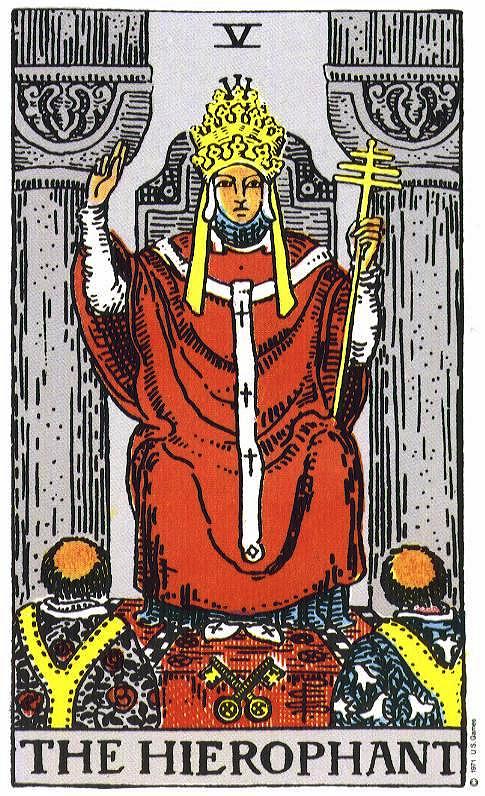IN THE BEGINNING WAS THE WORD II
~ In the Court of the Crimson King ~
- chapter 11 index -
pg. 1 - Moonchild | pg. 2 - The Dream The Illusion
pg. 3 - The Court of the Crimson King | pg. 4 - The Purple Piper
pg. 5 - Three Lullabies | pg. 6 - Orpheus
pg. 7 - The Keeper of the City Keys | pg. 8 - The Pilgrim's Door
pg. 9 - The Gardener | pg. 10 - The Yellow Jester
pg. 11 - The Dance of the Puppets | pg. 12 - Dionysus
pg. 13 - The Fool | pg. 14 - Logos
pg. 15 - The Magician | pg. 16 - Finis
site index
Translate from
"The keeper of the city keys
Put shutters on the dreams."

"The keeper of the city keys"
"The High Priest card... indicates preference for ritual, creed, the outer forms of religion. Bondage to the conventions of society. Need to conform, to be socially approved."
- Gray's commentary of the tarot
But there are also many positive things to be said for the High Priest and it is clear that the title song of In the Court of the Crimson King represents this archetype.























 Arachnophilia
Arachnophilia